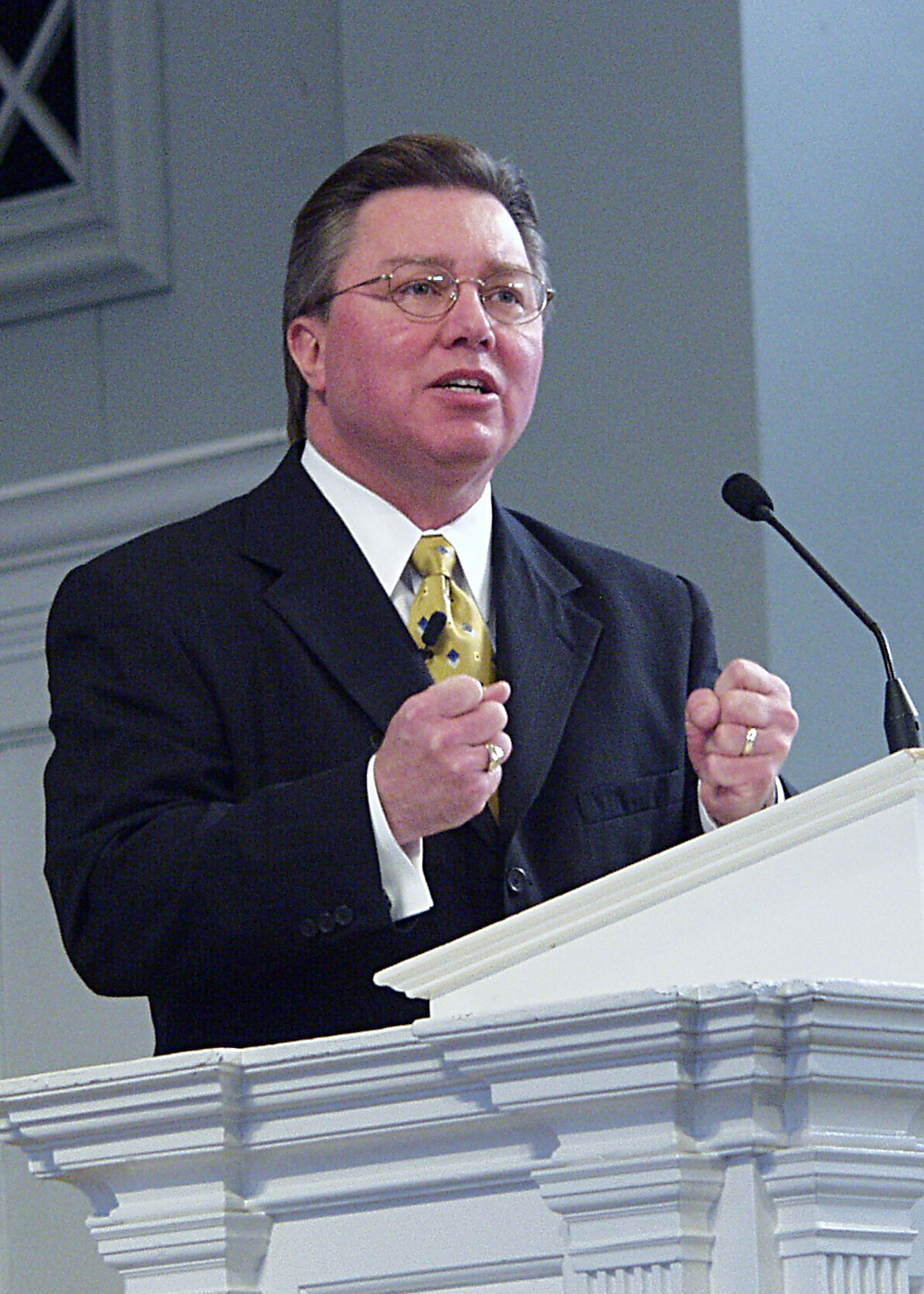
LOUISVILLE, Ky. (BP)–Each month, some 100 Southern Baptist pastors and staff members face forced termination.
That statistic — supplied by the LeaderCare ministry of LifeWay Christian Resources — hangs heavy on Roger Willmore’s heart. Since 1992 Willmore, pastor of First Baptist Church of Weaver, Ala., has served various roles for the Stephen Olford Center for Biblical Preaching in Memphis, Tenn.
In that capacity he has helped counsel and care for ministers and church staff members struggling to fulfill their call.
Willmore, who described himself as a “pastor to pastors,” spoke Feb. 28 about the demands of ministry in a chapel message at Southern Baptist Theological Seminary in Louisville, Ky.
“I discovered that those men and women who had come to the Olford center were experiencing the same kinds of difficulties in ministry that I had been experiencing as a pastor,” said Willmore, who is currently the Olford Center’s minister at large.
Willmore said those difficulties are many.
“My heart is burdened for pastors,” he said. “I see men burning out, giving up and leaving the ministry because they cannot deal with the demands of ministry.”
Pastors face many pressures, Willmore said. He named four: the pressure of preparing sermons each week, the unrealistic expectations of church members, the “transfer of emotion,” and the use of the world’s standards for success.
“There is pressure in preparing to preach Sunday to Sunday,” he said. “But whatever else you do, as a preacher of the gospel and as a pastor, be prepared to preach the Word of God.”
Willmore said it is imperative that the minister teach his congregation about the pastor’s biblical role.
“Most studies indicate that this is the number one cause of stress in the pastor’s life,” he said. “I believe one way to address that is to be faithful in preaching the Word of God and in teaching your people the role of the pastor, the role of the minister. Help them to understand your function.”
The “transfer of emotion,” Willmore said, occurs when ministering to people’s needs begins to drain the pastor emotionally.
“Genuine care and compassion for people takes a toll on the minister,” he said.
A pastor must not use the world’s standards for success, Willmore asserted. That involves a preoccupation with numbers, such as those of baptisms, church membership and finances.
“I am concerned that we have imported too many of the world’s standards into the church by which we attempt to measure the work of God,” he said.
Preaching from Luke 8:22-56, Willmore said pastors should model Jesus when they are faced with pressure. Willmore noted four aspects of Jesus’ ministry: he sought physical rest; he never got in a hurry; he did one thing at a time; and he surrounded himself with believers.
“I was warned by an older pastor when I was a younger pastor, ‘Don’t make major decisions when you’re tired and weary,'” Willmore said. “Seek rest first. God gave this instruction to Moses, to Elijah, to Jonah.”
Willmore said it is also important to avoid hastiness.
“[Jesus] never got in a hurry,” he said. “He was deliberate in his actions. He moved with a calmness through the stormy seas of life.”
To avoid hastiness, Willmore said, a minister must perform one task at a time.
“Could one of your perplexities be that you’re trying to do more things than you ought to be doing, some things that you shouldn’t be doing and trying to do more than one thing at a time?” he asked the seminarians.
But Willmore said the most important principle involves the minister surrounding himself with “positive, believing, praying people of faith.”
“I would encourage you to surround yourself with people of faith and separate yourself from the doubters and the complainers,” he said. “Be sustained by those who have faith in God.”
–30–
This message can be heard on the Internet at: http://www.sbts.edu/news/audio/chapelspring2002.html. (BP) photo posted in the BP Photo Library at http://www.bpnews.net. Photo title: PASTOR’S COUNSEL.

















